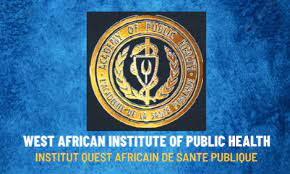By Iyemah David
The West African Institute of Public Health (WAIPH) has applauded the launch of a €1.5 billion Primary Health Financing Platform by the World Health Organization (WHO) and multilateral development banks.
The initiative is aimed at addressing critical gaps in Primary Health Care (PHC), particularly in vulnerable and underserved communities across Africa.
Dr Francis Ohanyido, Director General of WAIPH,said this in an an interview with News Agency of Nigeria (NAN) on Sunday in Abuja.
Ohanyid said that WAIPH, as a prominent player in regional health development, underscored the importance of prioritising essential needs, effective governance, and community-centred approaches to strengthen primary healthcare systems.
He said that the platform would focus on 15 Pathfinder countries, including Senegal and The Gambia in West Africa, aligning closely with WAIPH’s mission to improve health outcomes across the region.
“We commend the WHO, African Development Bank, European Investment Bank, and Islamic Development Bank for their commitment to financing primary healthcare.
“The institute will collaborate with governments and partners to ensure that the platform’s successful implementation and lasting impact,” he said.
Dr Ohanyido said that the platform marked a significant milestone towards achieving universal health coverage (UHC) and advancing the Sustainable Development Goals (SDGs).
He called for continued investment and partnerships to close healthcare gaps and build resilient health systems across Africa.
He disclosed that the platform was set to be a major focus of the upcoming Africa Primary Health Care Forum (APHCF) scheduled for July 24-25, 2025, in Abuja.
He said that key stakeholders would gather to discuss the future of primary healthcare financing.
WHO, in partnership with multilateral development banks (MDBs), has launched a 1.5 billion euros Health Impact Investment Platform to strengthen primary healthcare systems in Low- and Middle-Income Countries (LMICs).
The platform aims to boost resilience against pandemics and the climate crisis, with investment plans already being implemented in countries like Burundi, Ethiopia, Jordan, and the Maldives.
The European Investment Bank, African Development Bank, and Islamic Development Bank have committed initial funds, while the Asian Development Bank plans to join the initiative.
This effort will mobilise the funds in concessional loans and grants to improve healthcare in vulnerable and underserved communities.




